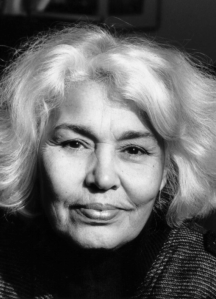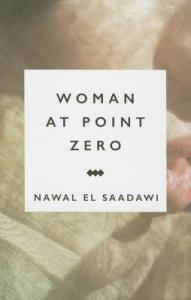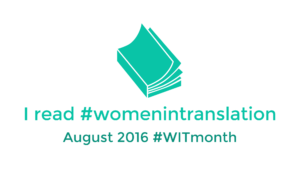
Author Nawal El Saadawi
Nawal El Saadawi is an internationally renowned feminist writer, activist, physician and psychiatrist. Born outside Cairo, Egypt in 1931, she has published nearly 50 plays, novels and short story collections, translated into over 40 languages worldwide. Many of her works are taught in universities around the world.
While practising as a psychiatrist in the 1970’s she had the opportunity while conducting research into the causes of women suffering from neurosis, to meet with a woman who had been imprisoned for killing a man, a woman who was due to be executed. The woman had refused to speak to anyone until that point, and she had also refused to sign an appeal by the prison Doctor to the President so that her sentence might be commuted to life imprisonment.
The idea of ‘prison’ had always exercised a special attraction for me. I often wondered what prison life was like, especially for women. Perhaps this was because I lived in a country where many prominent intellectuals around me had spent various periods of time in prison for ‘political offences’. My husband had been imprisoned for thirteen years as a ‘political detainee’.
After days of refusal, just as El Saadawi was leaving the prison for the last time, the Doctor told her the woman had agreed to meet her. They spent as many hours as were left of that day together, the woman recounting her the story of her life that had led to that moment.
El Saadawi left at the end of that day, never to see her again. She would be executed by hanging, her story absorbed by El Saadawi who would eventually put it to paper, in this telling of Firdaus or Woman at Point Zero, originally published in 1973.
 From her early days, Firdaus was a child who was noticed, though rarely looked out for, instances of cruelty and neglect made up the patchwork of her childhood. “Rescued” by an Uncle who’d already crossed filial boundaries, her one respite was to have been sent by him to school, his new wife further insisting she live there, perhaps the only paradisiacal period of her life, the one time she was left alone to flourish, to evolve, gaining her secondary school certificate, her sole prized possession.
From her early days, Firdaus was a child who was noticed, though rarely looked out for, instances of cruelty and neglect made up the patchwork of her childhood. “Rescued” by an Uncle who’d already crossed filial boundaries, her one respite was to have been sent by him to school, his new wife further insisting she live there, perhaps the only paradisiacal period of her life, the one time she was left alone to flourish, to evolve, gaining her secondary school certificate, her sole prized possession.
Finding no place for her in her Uncle’s home on leaving school, still a teenager she is forced to marry the more than 60-year-old Uncle of her Aunt, eventually runs from him and is taken in by another only to suffer worse abuse, a fate she seems destined to continue to live through until she meets Sharifa, who takes her in and teaches her how to recognise and extract her value, a turning point in her awareness which will change her fate.
‘How is it possible to live? Life is so hard?’
‘You must be harder than life, Firdaus. Life is very hard. The only people who really live are those who are harder than life itself.’
‘But you are not hard, Sharifa, so how do you manage to live?’
‘I am hard, terribly hard, Firdaus.’
‘No, you are gentle and soft.’
‘My skin is soft, but my heart is cruel, and my bite deadly.’
‘Like a snake?’
‘Yes, exactly like a snake. Life is a snake. They are the same, Firdaus. If the snake realises you are not a snake, it will bite you. And if life knows you have no sting, it will devour you.’
She would learn the value of her flesh, of her person and how to ensure she was rewarded for it, she would find a measure of independence, and wished never to be beholden to man. She became an employee and discovered a world where women were held in even lower esteem, in many ways more a slave than a prostitute.
At various moments in her life, she experienced a feeling that might have been love, experienced like a poetic symptom, ‘two circles of intense black surrounded by two rings of pure white, expanding before my eyes’ but each time it fades to illusion, leaving a dark shadow on her heart.
But I expected something from love. With love I began to imagine I had become a human being…In love, I gave all: my capabilities, my efforts, my feelings, my deepest emotions. Like a saint, I gave everything I had without ever counting the cost. I wanted nothing, nothing at all, except perhaps one thing. To be saved through love from it all. To find myself again, to recover the self I had lost.To become a human being who was not looked upon with scorn, or despised, but respected, and cherished and made to feel whole.
Her story and those moments are narrated in spell-binding, lyrical prose with a compassionate sensitivity that underpins a tale of one woman’s life long oppression and desire to lift herself out of it, to put a stop to the cause of that injustice, to face the truth without fear, which she ultimately did so, through her fearlessness of death, in her absolute refusal to live.
Highly Recommended, a must read.
Buy Woman at Point Zero via Book Depository (Affiliate Link)


Reblogged this on LITERARY TRUCE.
LikeLike
Wow Woman at Point Zero sounds like an incredible book. Great review, of what must have been a very thought provoking read.
LikeLiked by 1 person
I’ve been wanting to read Nawal El Saadawi for some time and decided this would be the one to start with, an incredible read, never sensational, a quiet damnation.
LikeLiked by 1 person
This sounds so captivating. I am currently reading Revenge by Taslima Nasrin, and it I feel it touches on similar themes, and reading this side by side would be so interesting. Thanks for the recommendation!
LikeLiked by 1 person
Oh, I see you did! Thanks for mentioning Taslima Nasrin, I’m going to look her up too.
LikeLiked by 1 person
Thanks for the reminder of this novel. I discovered Nawal el Saadawi’s writing many years ago. She’s tackled really important social and political issues, and was writing about female genital mutilation long before many of us in the West had heard about it. A great one for Women in Translation month.
LikeLiked by 1 person
Thank you, I’ve been meaning to read her work for a while and am tempted by The Essential Nawal El Saadawi: A Reader, a compilation of some of her essays, articles, short stories and the like. An important voice for women and society most definitely.
LikeLiked by 1 person
Sounds powerful and essential, Claire – so often women fight back against their abusers and their situation and are punished for it. The story needs to be told.
LikeLike
Absolutely and it is certainly not restricted to the developing world, there has been an outcry in France right now, over a situation where the court is refusing to release a woman, pardoned by the President for killing an abusive husband – who has become a symbol of the suffering of domestic abuse victims.
French court refuses to release woman pardoned for killing her abusive husband
LikeLiked by 1 person
Brilliant review, Claire! Just reading your review was heartbreaking. I have wanted to read Nawal El Saadawi for a while now and maybe I will start with this. It is so hard when a person suffers so much abuse to see the light at the end of the tunnel. So much suffering makes the heart harden. It is sad and heartbreaking that some people have to go through this.
LikeLiked by 2 people
Thanks Vishy, yes it is sad and tragic when some lives seem to be an endless path of tragic events, even when she rises above it, she observes it manifesting everywhere around her to varying degrees. Nawal Al Saadawi is a tour de force, I’m looking forward to reading some of her essays too.
LikeLiked by 1 person
Thank you – I’m going to commit to reading this between now and this time next year. I haven’t read any of Nawal El Saadawi’s work. The quote that begins “But I expected something from love….” – yes!
LikeLiked by 1 person
Hi Claire, I just bought this book yesterday. I will recommend it to my fb friends who are very vocal as am I, regarding Muslim women. Even so I do not approve of the said beach burkini, I also am aware how the burka was forced on women by Muslim men, and so much more…
LikeLike
Pingback: 3 Egyptian Novels Published by Small Presses. (Small Press September) – bibliosa
Pingback: Top Reads 2016 – Word by Word
WOW! I never thought that “the two circles of intense black surrounded by two rings of pure white,” are a symbolism of the fake love and affection she was deceived by. It is actually a brilliant book for that it is so rich with symbols that are open to interpretations.. loved your review! I also have reviewed the book and discussed some of the symbols mentioned, I d be glad if you check it.
LikeLiked by 1 person
An amazing but sad story, told by a wonderful writer, another I’d like to read more of. Last year I read another Egyptian classic The Open Door by Latifa Al Zayat, have you read that one? I thought it was really interesting and we’ll portrayed, especially for the period it was written in.
LikeLike
I actually haven’t, but I will for sure * putting it in my future log *…….speaking of the future log, I will soon read/review Medaq Alley by Najib Mahfouz, it is also a book that portrays its era socially and politically.
LikeLiked by 1 person
I look forward to following your reading and your well thought out reviews. I think I have a Mahfouz on my shelf, not sure which one, but I try to read more women writer’s now, as male writers tend to get more publicity and recognition, particularly classics.
LikeLike
they do actually, especially in the middle east.
thank you so much for your kind words, I have enjoyed your blog as well and I am looking forward to more of your reviews ….especially middle eastern and northern African ❤
LikeLiked by 1 person
I love finding good recommendations from this part of the world and love sharing them on the blog in the hope that more people discover the excellent writers and storytellers from these regions and learn something about the way of life and culture through reading fiction.
LikeLiked by 1 person
Pingback: Top 10 Books by Women In Translation #100BestWIT – Word by Word